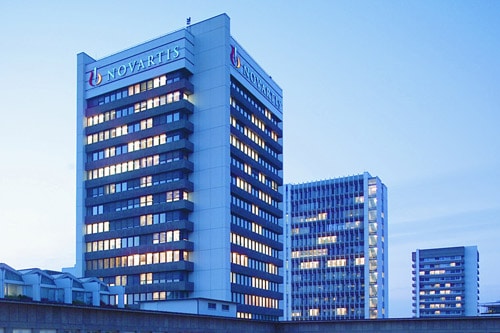
Amid all the financial data in its interim update, Novartis has revealed that it won’t be increasing the price of any of its drugs in the US for the remainder of the year.
CEO Vas Narasimhan – just 100 days into the role – told CNBC that “our goal is always to price our medicines with a value-based approach where we can … be reasonable with our price increases and be in line with the way the overall medical market is playing out”.
He stressed that net pricing has not actually increased in the US and in fact have been “flat to declining” due to rebates and market dynamics.
The Novartis move comes just a few days after Pfizer CEO Ian Read was called out by President Donald Trump over his company’s 2018 price rises and backtracked, saying he wouldn’t go ahead with the increases on around 100 products until the end of the year or the Trump’s blueprint on pricing goes into effect – whichever is sooner.
Meanwhile, Novartis is still fighting a rear-guard action over the relationship between its former CEO Joe Jimenez and Trump lawyer Michael Cohen, and the firm’s influence over the president’s drug pricing policy – although Narasimhan said he thinks this matter has now been resolved.
Novartis’ decision to keep pricing steady has been helped by a rosy set of second-quarter results, with recent launches Cosentyx (secukinumab) for psoriasis and heart failure therapy Entresto (sacubitril and valsartan) helping to drive sales up 7% to $13.2bn, around $300m ahead of analyst expectations.
Cosentyx sales rose 20% to $701m in the quarter, while Entresto is gaining momentum after a sluggish start with sales more than doubling to $239m, finally setting it on a course for its long-predicted blockbuster status.
There were also strong gains for the emerging Sandoz biosimilars franchise, which grew by a third to $363m in the first six months of the year, driven by Rixathon(rituximab) andErelzi(etanercept) in the EU, and Zarxio (filgrastim)in the US. However, sales at Sandoz were flat overall as pricing pressure pegged back small-molecule generics in the US.
Since taking the helm of Novartis in February, Narasimhan has followed through on plans to narrow the focus of the group by selling its consumer health business to GlaxoSmithKline for $13bn – ploughing the cash back into the pipeline-enriching acquisitions of gene therapy company AveXis and radiopharma specialist Advanced Accelerator Applications – and going ahead with the spin-off its Alcon eyecare unit.
“We made significant progress this quarter to transform Novartis into a focused medicines company,” said the CEO, who also pointed to other development including the approvals of CAR-T therapy Kymriah for diffuse large B-cell lymphoma (DLBCL) and new migraine therapy Aimovig (erenumab).
Kymriah’s take-up continues to be slow however, with sales at $16m in the quarter, inching up from $12m in the first three months of the year when it was approved only for acute lymphoblastic leukaemia (ALL).
Overall, Novartis now expects revenues to come in at the high end of expectations for 2018 as a whole with a mid-to-upper single digit percentage gain.




